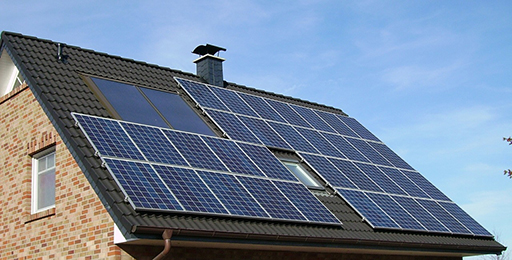5.2 The role of active citizens and communities
UK Government policy is that individuals and households have a role to play in reducing emissions, especially from home energy use and transport. However, policies have shifted over the past decade, with less emphasis on supporting individual and household action (e.g. with grants and subsidies for home insulation) and more on voluntary initiatives and what business and governments can do.
Part of the reason for this shift is that governments have become increasingly reluctant to try to change the lifestyles and consumption of millions of people, focusing instead on influencing business and other major decision-makers. So, for example, as noted earlier (Section 4.1), most of the UK’s recent reductions in GHG emissions are the result of shifts from coal to wind and solar electricity generation, while emissions from people driving and flying have increased.
As George Marshall (2014) has argued, from a psychological viewpoint, asking people to reduce their carbon footprint to help tackle climate change is a very difficult message to get across, as it may require immediate sacrifices in order to address an invisible long-term problem. Also, individuals don’t control many of the decisions that affect their carbon footprint, such as national energy and transport policies, town planning, food processing and retailing practices, overseas farming and manufacturing, and so on. In other words, while individuals and households are directly or indirectly responsible for most of the consumption of goods and services, they do not control their production and distribution.
So it is now recognised that while individuals and households can do much to reduce their carbon footprints, they can’t make the over 80% reductions needed to reach a sustainable footprint. That requires actions by communities, businesses, local and national governments, for example in developing a low-carbon energy supply system, improving the energy and materials efficiency of industry, and contributing to international efforts on climate change.
Another reason why people argue that others are responsible for environmental problems is that they often feel powerless in the face of all the complex decisions and big changes that seem necessary. However, even if they don’t directly control many economic activities and policy decisions, in a democracy at least, individual citizens can exert influence by voting in elections and political involvement.
Another way ‘we’ can help reduce carbon footprints is by joining with others in a pressure group such as WWF (World Wide Fund for Nature) or one of the voluntary groups that get together to help each other reduce their individual and household impacts. Such voluntary groups include: those set up through a charity called Global Action Plan; local groups in the Transition Network; and some 5000 community energy groups that have formed in Britain since 2010 to install renewable energy technologies and improve home energy efficiency (DECC, 2015b). The UK Government considers such community initiatives to be as – or more – effective, than individual action.
In the workplace, individuals can switch off lights and computers, recycle waste paper, and so on. But surveys show that individuals are less likely to save energy at work than at home, as they don’t have to pay the bills. However, by working with their colleagues, they can help each other to adopt green practices and also encourage their employer to adopt environmental policies, for example switching to a green electricity supplier, setting up recycling facilities, and establishing staff travel plans.

